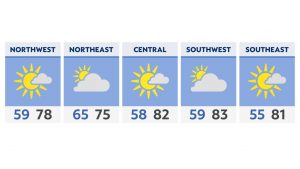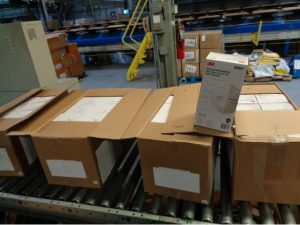Use of the Johnson & Johsnon vaccine remains suspended across the country after regulators recommended the pause after 6 recipients in the U.S. developed a rare disorder involving blood clots.
Tuesday, the CDC and FDA recommended a pause in use of the one-shot vaccine “out of an abundance of caution.” The clots occurred in veins that drain blood from the brain and occurred together with low platelets, the fragments in blood that normally form clots. All six cases were in women between the ages of 18 and 48. One person died; all of the cases remain under investigation.
On Wednesday a panel of independent experts, the Advisory Committee on Immunization Practices, voted to extend the pause.
There is no proven link between the shot and the blood clots, but the panel wants to more time to look at the data and determine whether use of the vaccine should be limited to certain populations.
The delay is controversial.
Dr. Nirav Shah, president of the Association of State and Territorial Health Officials and director of the Maine CDC, warned the committee that it will impact the most vulnerable people.
“We are in a situation where not making a decision is tantamount to making a decision,” Dr Shah told the panel. “Any extension of the pause will invariably result in the fact that the most vulnerable individuals in the United States, who were prime candidates for the Johnson & Johnson vaccine, will remain vulnerable.”
The Johnson & Johnson shot was seen as an ideal candidate for rural communities and those with fewer health care centers, because it requires just one injection and does not need to be stored at unusually low temperatures. The hold means these communities will have to find ways to access the Moderna and Pfizer shots which require more coordination.
The White House has said that the pause could cause slowdowns in the near term, only. White House COVID-19 response coordinator Jeff Zients said that the Johnson & Johnson pause “will not have a significant impact” on the Biden administration’s vaccination plans, noting that Johnson & Johnson’s shot “makes up less than 5 percent of the recorded shots in arms in the United States to date.”
Other countries are following suit: The European Union and South Africa have both put the injection on hold as well.
Now U.S. health officials are expressing an additional worry: That the pause will accelerate fears that the vaccines are unsafe.
An Economist/YouGov poll shows that faith in the safety of the Johnson & Johnson vaccine sits at 37%, down from 52% prior to the pause.
In an interview with Spectrum News, Surgeon General Vivek Murthy said that recipients of the J&J vaccine have a less than one in a million chance of developing this extremely rare blood clot.
And health experts explain the vaccine remains effective at preventing severe COVID-19; the rate of a rare blood clot disorder in the brain was much higher in people infected by COVID-19 than in those who had been given vaccines for the virus, a study conducted by researchers at the University of Oxford found.




